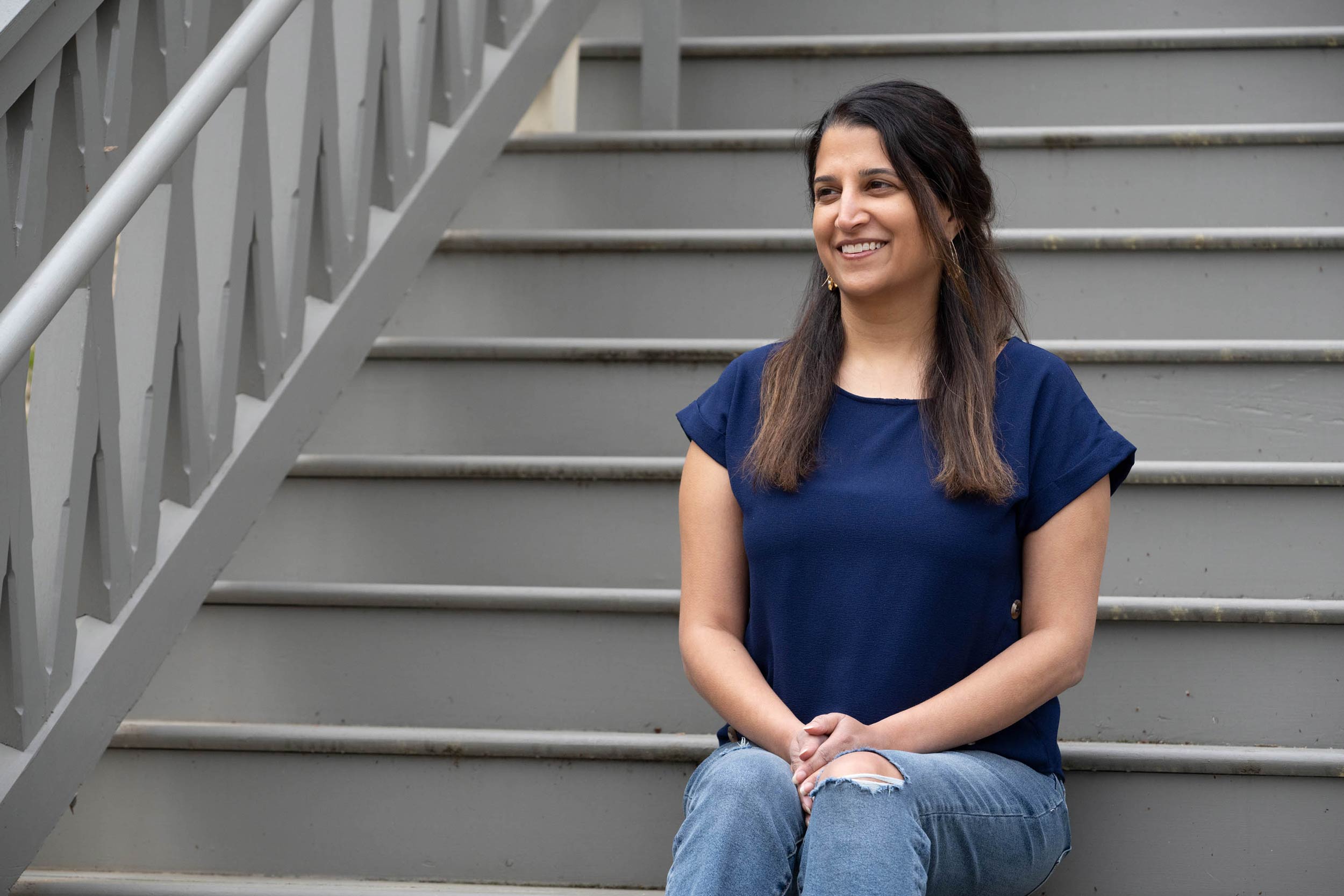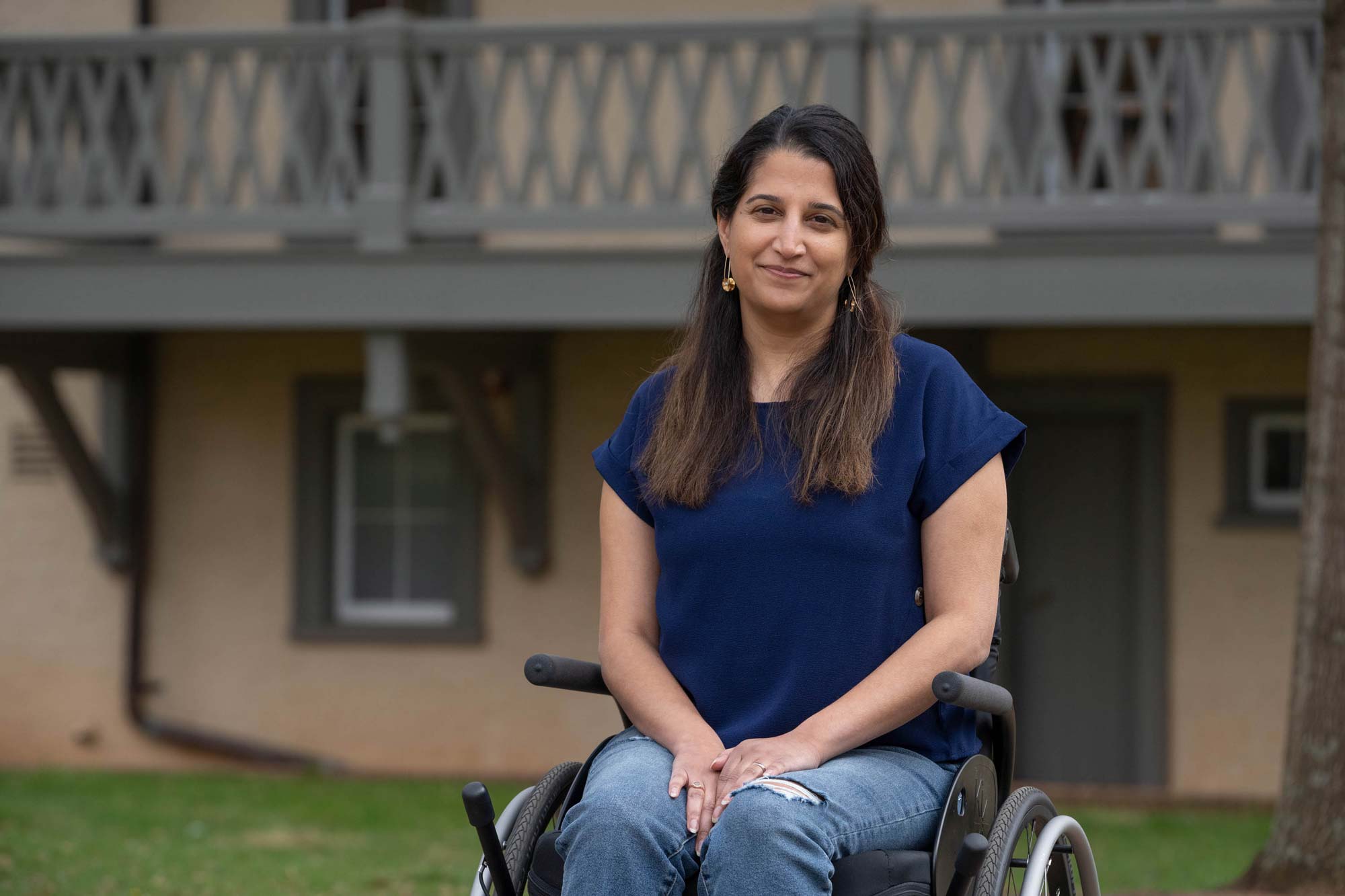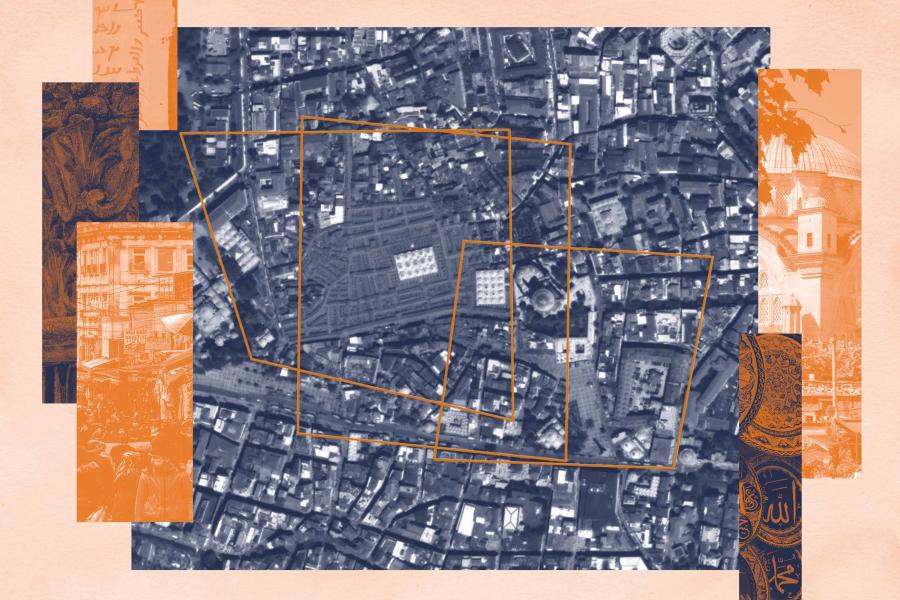Rupa Valdez believes everybody should have the opportunity to travel, whether to a new local restaurant or a new country – and she means every body.
Valdez, an associate professor focusing on engineering in health care at the University of Virginia, established Blue Trunk Foundation six years ago to collect information and research that would improve experiences for people with disabilities and chronic health conditions. She did so out of a desire to help others, but also for personal reasons.
Growing up in Wisconsin, Valdez had been an active young adult and, although her family didn’t leave town much when she was a child, she and her sister fell in love with travel first through books and then through trips both locally and abroad.
But traveling later became problematic.
“I was a dancer, and swam and ran,” she said. “I ended up having one injury and then another with different tendons in my body. I first experienced the impact of this condition in my late 20s, and by my early 30s, I was living with widespread chronic pain.
“When my daughter was about a year old, things got really, really pronounced, and I started using a wheelchair.”
Valdez holds joint appointments in the School of Engineering and Applied Science’s Department of Engineering Systems and Environment and the School of Medicine’s Department of Public Health Sciences. She is also a core faculty member for UVA’s Global Studies program and the Disability Studies Initiative. She became interested in the emerging field of health systems engineering while an industrial and systems engineering student at the University of Wisconsin-Madison.
Since Valdez first began living with chronic health conditions in her early 20s, her personal experiences have shaped not only her work with Blue Trunk but also her research, teaching and broader advocacy.
Today, her research involves understanding the need for and designing useful systems to support people living with disabilities and chronic health conditions. She was recently awarded the Jack A. Kraft Innovator Award from the Human Factors and Ergonomics Society for her pioneering work in this area.












